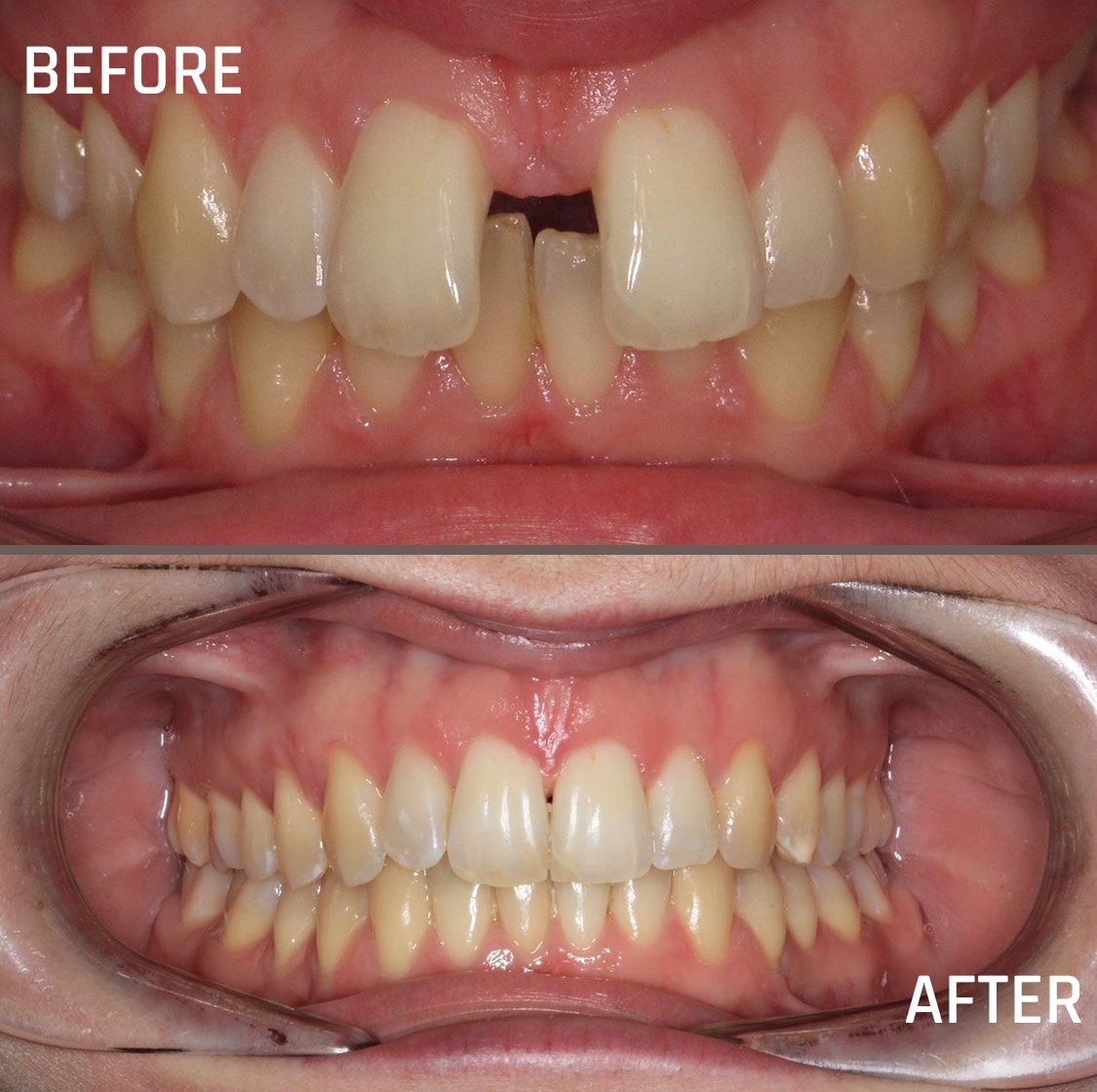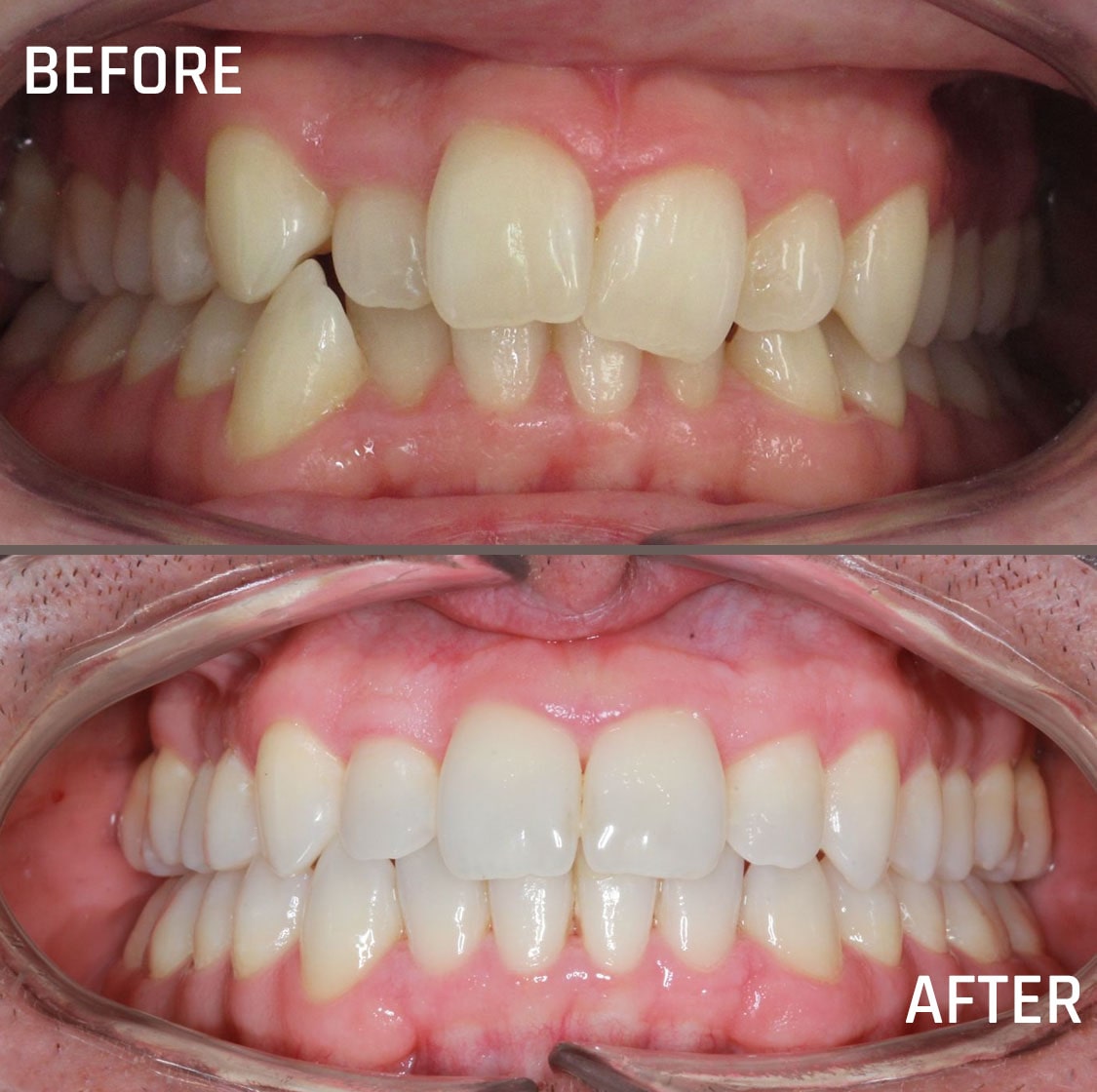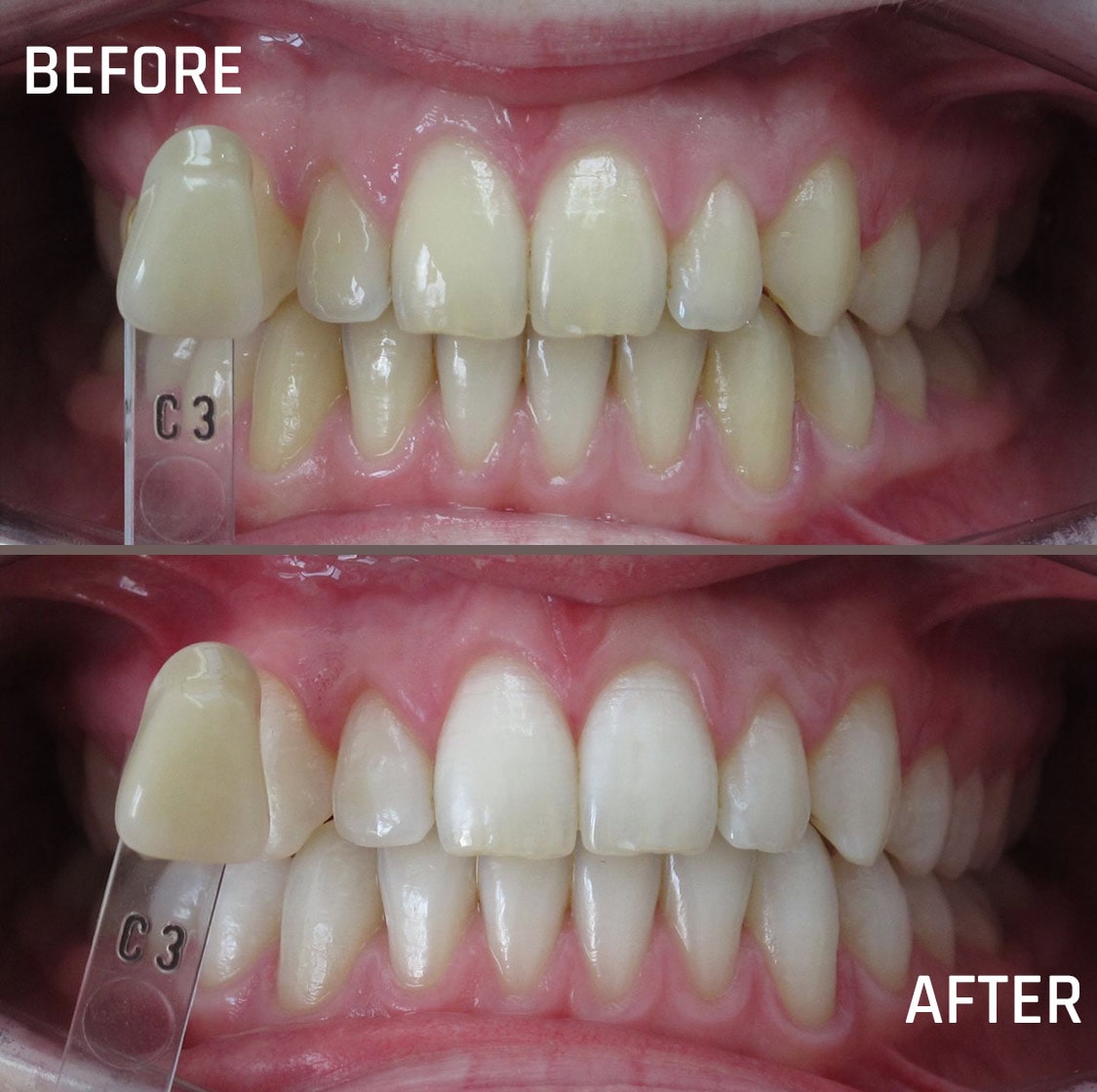
Teeth whitening is a common cosmetic dental procedure. It involves bleaching teeth to make them appear whiter. The best way to preserve your smile and keep it bright is to look after your teeth and, but a little help to achieve this isn't unusual.
You may consider whitening your teeth for different reasons. Some people lose their teeth whiteness with age, but drinking lots of red wine, coffee or tea and smoking can stain the teeth.
However, with professional teeth whitening treatments, you can quickly and safely remove stains without damaging your teeth. A brighter and whiter smile makes many people feel more confident and you can benefit from this.


The following are the criteria for teeth whitening.
If you are pregnant or breastfeeding, you will have to delay the treatment because it is still unclear if whitening products can affect a baby. Teeth whitening won't lighten the colour of white composite fillings, dentures, bridges or veneers.
Ensure you consult your orthodontist to determine if you are eligible for teeth whitening and discuss your whitening options, including their cost.
If you are unsuitable for teeth whitening, you may consider seeing your general dentist to dicuss the option of composite bonding, veneers or crowns for partly damaged or discoloured teeth.
Two main teeth whitening options are available. They include in-practice whitening and at-home teeth whitening kits.
This teeth whitening option involves a tooth whitening kit with gels and trays to take home and use nightly for 2-3 weeks followed by a in-practice teeth whitening session
This option also includes a teeth whitening kit with gel and trays to take home and wear nightly for 2-3 weeks but does not include a final in-practice session.
Home teeth whitening is also a top-up whitening process after in-practice teeth whitening.
If a tooth has darkened after root canal treatment, your general dentist may recommend internal teeth whitening. This involves re-opening the hold made during the root canal treatment, putting the whitening gel into it, and then closing the hole using temporary filling material.
This treatment may be repeated 2 – 3 times, about one week apart. After the treatment, the dentist will permanently close the hole with a tooth-coloured filling.
With proper care of your teeth after professional teeth whitening, the result can last a long time. The following are necessary to maximise the effect of your teeth whitening treatment.
You may also use top-up kits to maintain your new smile. The orthodontist will explain how you can care for your smile after treatment.


Teeth whitening cost varies among practices. Generally, at-home teeth whitening is less expensive than in-practice teeth whitening. During your initial consultation, the orthodontist will inform you of the cost of your teeth whitening treatment.
If you want to whiten your teeth and improve your smile, visit Kingston Orthodontics or contact us at 0203 002 2501 to book an appointment for your teeth whitening


Yes, they do. Teeth whitening done by a trained professional works. Teeth whitening uses peroxide-based gel to lighten the teeth. When the chemicals break down, they release oxygen that enters the hard, outer teeth surface (enamel) and whitens it.
The cost of teeth whitening varies among practices. At-home teeth whitening costs less than in-office teeth whitening because you spend less time in the dental practice. The initial consultation also comes at a cost.
Yes, it is. Teeth whitening is safe when done properly. It is illegal for anyone who isn't a registered dental professional to carry out teeth whitening. A dental professional includes dental hygienists, technicians, therapists and dentists registered with the General Dental Council.
Over-the-counter teeth whitening products only contain 0.1% of hydrogen peroxide. It is illegal to sell whitening kits with a higher level of hydrogen peroxide without dentist supervision. These low levels of peroxide do not give stable results like professional teeth whitening.
Teeth whitening done by a dentist usually contains up to 6% of hydrogen peroxide. A trained dental professional must administer this treatment but must first evaluate your suitability for treatment.
Some over-the-counter whitening kits are abrasive and work by wearing away the enamel. The teeth may appear white initially, but the long-term effect is tooth surface loss.
Teeth whitening doesn't hurt, but some people experience mild sensitivity during or after the initial treatment. This should subside after a few days. If it doesn't, contact your orthodontist for further advice.
Your dentist may recommend suitable toothpaste and other products to prevent sensitivity. Whitening products used by dentists contain anti-sensitivity ingredients in the gels to prevent sensitivity.
Many people can undergo teeth whitening, but some may be unsuitable if they have dental problems like tooth decay and gum disease.
You need a consultation with the orthodontist before treatment to determine if your teeth are suitable for whitening.
No, it won't. Teeth whitening works on only the natural teeth. You cannot whiten restorations such as white fillings, dentures, crowns and fillings.
Teeth whitening is a cosmetic procedure, so it is not available in the NHS. You can arrange for a finance option to spread the cost of your teeth whitening.
The result of your teeth whitening depends on your teeth. Your orthodontist can advise you on the likely results during your initial consultation. In-office teeth whitening products like Philips Zoom whitens the teeth by up to six shades within one hour.
When done properly, teeth whitening results should be permanent, requiring only top-ups at home every few months. You can get top-up products from your orthodontist.

Spread the cost of any treatment
We are here to help you achieve the perfect – and affordable – smile so please talk to us about our popular interest-free payment plans. Spread the cost and relax – secure in the knowledge that your treatment will take place on time and on budget.